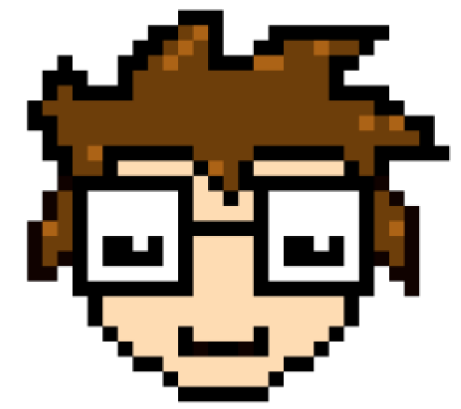While I sit and reflect on my future beyond the hyperlinked library a few things stand out to me at the end of our journey together.
Infinite learning
I think it is extremely important that we continue to learn. We explored this idea in module 12, infinite learning. We must be ready to accept that we must always continue to learn. While the term ‘accept’ sounds as if we are giving in to some negative expectation, as librarians, this should be built into the fiber of our being. How are we going to build better ways of connecting with our users to information if we do not continue to learn what they want? How they see the world? And explore new technologies to which information can be connected to our user?
I think this happens a few ways, but none more important than through curiosity. Jan Holmquist espoused curiosity as one of the most important qualities of librarians in the mobile environments module. We don’t need to be experts in the various technologies that we use in libraries. Curiosity, according to Jan, can drive us in our learning and power the ideas we develop in our libraries.
Technology, only a tool
Throughout the course we have explored new technology, new innovative practices in libraries across the globe, and new ways to connect our users to library services using the hyperlinked library model. One thing has stuck with me from the very first #hyperlib chat we had on August 30th, “Technology, only a tool”.
While this may seem obvious, it is important to remember this as we move forward to avoid technolust, “an irrational love for new technology combined with unrealistic expectations for the solutions it brings” (Michaels, 2004, para. 1).
Something I’ve struggled with this term is how libraries are changing and what they are going to be in the future. Throughout history, libraries have been a place to share information and provide our users with access to that information. While this has traditionally been done through books and journals (print), new technology has made accessing information very different.
The life cycle of technology nowadays is so short. For example, we get new phones every 1, 2, or 3 years? Not to mention upgrades are hitting the market every few months. I think we lose sight that books too were once a new technology, the printing press changed the way that people produced and consumed information, books could be quickly produced and information could more easily distributed. That technology lasted a long time! Gutenberg’s press was around 1440. That is about 575 years (math isn’t my strong suit, correct me if I’m wrong).

Today we produce new technology much more quickly. New technology is quickly adopted, adapted and changed. I would argue that this is because of the internet and global connectivity we have today. So to say that libraries should just be books, etc., I think that is just a result of books having such a long product life as a technology.
Books were, and will continue to be a tool we use in libraries, they aren’t going away, they aren’t obsolete, but we need to make room for some of these new tools and technologies to share information and promote collaboration, creativity and learning! When traditional librarians see technology as a mode to access information, we will be able to build upon that into the core mandates of our libraries and the hyperlinked library can continue to grow.
Pitching ourselves
While it is easy to talk to other librarians about what we do in our profession. Explaining that to people outside of the library world can be extremely difficult.
Over the past few weeks I have been asked by various people what I do, one was my grandparents, the other was while I was sitting in a dental office waiting for the anesthesia to take hold before a routine procedure (trying to come up with a jargon free definition of librarianship while losing feeling in half your face is quite difficult!)
Since then, I have been working on my pitch and I have to admit I am not done yet. We are competing with a generation of people who have easy access to information at their fingertips with mobile technology. Google seems to have every answer with just a few simple keystrokes. While we know that libraries are much more than providing a simple answer to a question, or accessing some book on a shelf, it isn’t other librarians we have to pitch ourselves to. We all need to work on an elevator pitch for those people who don’t necessarily use libraries or think that libraries are only a place for books.
Let’s get out there and make the perfect pitch!
Conclusion
Over the past 3-4 months this course has left me with much to reflect on. While we would like to think that everything has a clear cut answer the following will require much more reflection, far beyond what we have time for in this class. Infinite learning, technology as tool, and defining what we do as library and information professionals (in the eyes of the average person) will be important moving forward.
References
Stephens, M. (2014). What’s Your Pitch?
Stephens, M. (2004). Technoplans vs. technolust.


Hi Ryan,
Thanks for this thoughtful reflection, and the awesome photograph. You hit on some key points that we all need to keep in mind. Good luck on your journey of lifelong learning!
@susan Thank you for your comment and I wish you the best in your life long learning as well!
@susan Also, I thought I would share where I got this photo from.
About a month ago Stephen Abram shared a post about a resource for accessing images for use in blogs, websites, etc.
Here is the link to the post (which links to another blog):
http://stephenslighthouse.com/2015/10/12/free-stock-photos-74-best-sites-to-find-awesome-free-images/
From this list I stumbled upon Unsplash (https://unsplash.com/). The photos on this site are stunning and are licensed under Creative Commons.
————————–
UNSPLASH LICENSE
All photos published on Unsplash are licensed under Creative Commons Zero which means you can copy, modify, distribute and use the photos for free, including commercial purposes, without asking permission from or providing attribution to the photographer or Unsplash.
—————————-
Hi Ryan,
Great Reflection! I also think that books will always be a part of the library. I am so glad that there is room for the library to be all inclusive. We are like General Contractors. We have the knowledge to do pretty much anything. I think one really important key to being a librarian is having a open mind and being flexible. We are sometimes looked at as being all knowing. I would not say that I have all the answers but I can point you to where you can find them. I love that libraries are now changing into places that people think of when they think of community.
Thank you Melody!
I agree with everything you said! I’m never going to be an Aerospace Engineer, Art Historian, Political Analyst, or any other number of professions, but in the academic library I can help connect people to the information or contacts that are available to help the student become those things.
“Pitch perfect” – a great title for a follow up piece. I like that you address both the foundational tenets of what we do and the ever-evolving way that people access info. 🙂